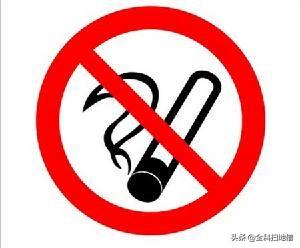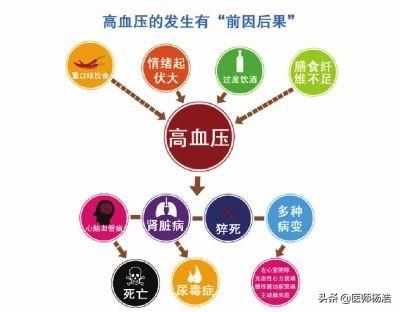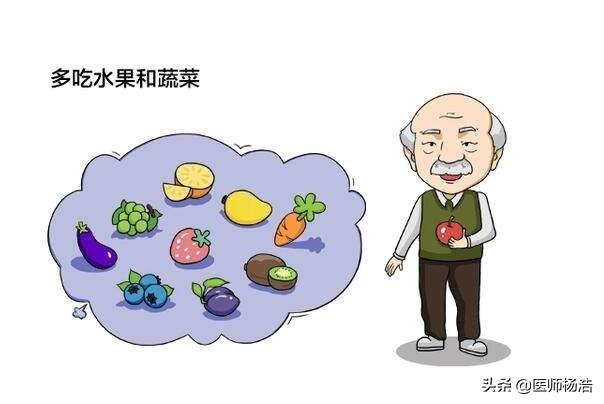Why do women who don't smoke or drink still have high blood pressure?
It is true that smoking and alcohol consumption are high-risk factors for the development of hypertension. However, many hypertensive patients in our life do not have a history of alcohol consumption and smoking, especially some women, also develop hypertension.

Hypertension is a syndrome characterized by persistent systolic blood pressure ≥ 140 mmHg and/or diastolic blood pressure ≥ 90 mmHg, and may be accompanied by complications in target organs such as the heart, brain and kidney. Hypertension can be caused by many factors, including genetic and environmental factors, among which the common environmental factors include high salt diet, long-term smoking, excessive alcohol consumption, lack of exercise, overweight or obesity, emotional fluctuations, irregular life, and suffering from a number of diseases that lead to elevated blood pressure.

As you can see, there are many factors that can cause high blood pressure, and it is not true that high blood pressure will not occur if you do not smoke or drink alcohol. Hypertension is caused by a combination of factors. In order to prevent hypertension, we should pay attention to a sensible diet, stop smoking and limit alcohol consumption, exercise appropriately, control body weight, have a regular work routine and maintain a good mindset. For high-risk groups, it is also important to monitor changes in blood pressure levels and have regular screenings.

Once diagnosed, hypertension should be actively consulted and treated, attention should be paid to improving lifestyle, and medication should be reasonably administered under doctor's guidance. Drugs should be individualized, and long-lasting preparations should be preferred, so as to control blood pressure stably in the long term, reduce the occurrence of complications, improve the quality of life, and improve the prognosis. For young hypertensive patients or hypertensive patients whose blood pressure level is too high or the effect of regular antihypertensive medication is poor, they should be alert to the possibility of secondary hypertension.
This article is answered by General Practice Sweeper, we hope that it will be helpful to you, copyright ©️, reproduced with permission. Please correct any deficiencies. The article is for reference only and is not intended as medical advice or medical guidance.
Many people think that people who smoke or drink alcohol have high blood pressure and assume that their high blood pressure is caused by smoking or drinking.
But in reality, it's far from simple.
It is true that people who smoke and drink alcohol are more likely to develop high blood pressure. Carcinogens such as nicotine contained in tobacco cause long-term damage to the endothelial cells of the blood vessels, and also stimulate the heart, causing the heart to beat faster, which elevates blood pressure and increases the risk of cardiovascular disease. One study found that the incidence of high blood pressure is about 2.5 times higher in smokers than in non-smokers! And although there is no clear evidence that it causes high blood pressure, limiting alcohol consumption (daily alcohol intake of no more than 25g for men and 15g for women) is known to help lower blood pressure, and if alcohol intake is reduced by an average of 67%, systolic blood pressure will fall by 3.31mmHg, and diastolic blood pressure by 2.04mmHg.
However, the development of high blood pressure is not only related to smoking and drinking. About 60% of people with high blood pressure have a family history of high blood pressure. The older you are, the more likely you are to develop high blood pressure. These factors that we cannot change are also important in increasing the risk of developing hypertension.
In addition to this, a wide range of poor lifestyles lead to important influences on hypertension, such as high sodium and low potassium diets, lack of exercise, overweight, chronic stress and anxiety, and so on. In case of other metabolic disorders such as diabetes, dyslipidemia, etc., the likelihood of hypertension will be even higher.
Therefore, hypertension must occur as a result of a combination of factors, not one or the other.It is possible to be a non-smoker, non-drinker, man or woman and have those risk factors mentioned above.

So is there a difference in the incidence of hypertension between men and women?
In general, there is not much difference, because each has its own risk factors. For example, in our country, men generally bear more family responsibilities, work pressure, life pressure is relatively large, but also often need to "socialize" (smoking, drinking, etc.), these are to increase the risk of hypertension incidence; and relative to men, women are more likely to be obese, the amount of physical activity is also more than the lack of men in the menopause and postmenopause, women sympathetic nerve is more active, the possibility of hypertension will increase. Women's sympathetic nerves are more active and the likelihood of hypertension increases.
Therefore, we remind you not to dwell on the question of "Why do women still have high blood pressure if they don't smoke and drink?Holding a healthy lifestyle and a positive outlook is what we should be doing now.

I am physician Yang Hao, specializing in the diagnosis and treatment of common and multiple diseases, chronic disease management, health science. Welcome to like, forward, leave a message, pay attention to this headline, let you live a healthier life!
Smoking and drinking are only some of the risk factors for high blood pressure, not all of them, so even if some people don't have the habit of smoking or drinking, they may still have problems with high blood pressure.
Excluding smoking and drinking, there are several other risk factors that may lead to high blood pressure that you can check for yourself:
1, overweight, obese, especially those with excessive accumulation of abdominal fat, women with a waist circumference greater than or equal to 85 centimeters, elevated risk of hypertension.
2, often stay up late, or long-term mental tension, stress anxiety, this mental stress response may also make the blood pressure rise, theAs for women, menopause is characterized by mood swings and irritability and depression, which may also lead to increased blood pressure at this time.
3, the influence of genetic factors, research has found that if both parents have high blood pressure, then the risk of children suffering from high blood pressure will be as high as 46%.
4, poor diet, long-term high sodium diet, or low potassium, magnesium diet, can increase the risk of hypertension, theFor example, the diet rarely eats coarse grains, vegetables and fruits are not eaten much, and the taste is too heavy.
5, the impact of drugs, some of the side effects of drugs can also cause elevated blood pressure.e.g., non-zithine antibiotics, licorice, birth control pills, etc.etc. If you have been taking medication recently, read the instructions or ask your doctor if this medication affects your blood pressure.
6. Kidney with substantial lesions, which can lead directly to elevated blood pressure, also known as renal hypertension.
Therefore, we can learn that, in addition to smoking and drinking, there are many other factors that can lead to the occurrence of high blood pressure, you can self-check from the above aspects to find the causes, and at the same time, when you find high blood pressure to seek medical treatment early to stabilize the blood pressure and reduce the risks and harms caused by long-term elevation of blood pressure.
Thanks for reading, I hope this helps.
High blood pressure is a symptom, we often say high blood pressure is the cause of unknown high blood pressure, caused by many reasons, which is related to heredity, mental factors, high blood sugar, high blood fat and so on. Tobacco and alcohol have an effect on blood pressure, but they are not decisive factors.
Hypertension is a clinical syndrome characterized by increased arterial pressure in the body circulation. It is divided into two categories: primary hypertension and secondary hypertension. 95% of hypertension is of unknown cause, which is primary hypertension; less than 5% of elevated blood pressure is a clinical manifestation of certain diseases, which is secondary hypertension. Primary hypertension, also known as hypertension, is a common cardiovascular disease. Long-term hypertension is an important risk factor for a variety of cardiovascular diseases, which can lead to heart failure, kidney failure, stroke and other serious consequences.
The etiology of essential hypertension is unknown and is related to a variety of factors including genetics, age, behavior, and diet. The main risk factors include smoking, hyperlipidemia, diabetes mellitus, age greater than 60 years, in men or postmenopausal women, and a family history of early-onset cardiovascular disease (onset in a first-degree relative at an age less than 50 years).
There are many causes of high blood pressure, smoking and drinking are only two of them, diet and poor mood can also become a cause of high blood pressure, only improve the diet structure to improve mood, and with appropriate exercise training, you can ensure that you are healthy.
Smoking and drinking is one of the causes of high blood pressure, and there are many people who have never had high blood pressure in their lives! Hypertension is a chronic disease, it takes five to ten years for its latent formation period! Thirty years old blood pressure is normal, thirty-five is okay, forty years old one day suddenly feel uncomfortable, a go check the blood pressure is high! Especially women, women's life is not regular, happy and easy to anger, it is easy to reach a certain stage to form high blood pressure!
There are more causes of high blood pressure than just smoking and drinking. The following causes can also lead to developing high blood pressure:
- There is a family history of hypertension.
- Excessive work stress and mood swings.
- Excessive salt intake in general.
We all know that high blood pressure is a very common disease, and its causes are more, such as dietary factors, environmental factors, mental factors and many other aspects are not caused by a single factor. It is because it is not a single factor, so do not smoke, do not drink, does not mean that will not get high blood pressure. So it's not surprising that women who don't smoke or drink also get high blood pressure.
This question and answer are from the site users, does not represent the position of the site, such as infringement, please contact the administrator to delete.